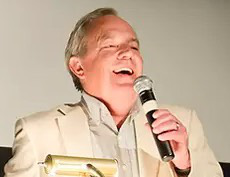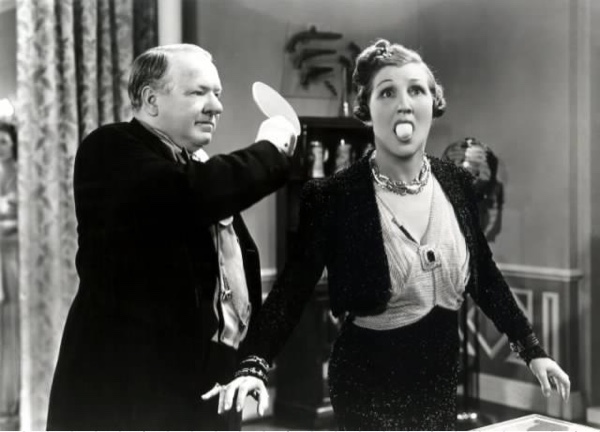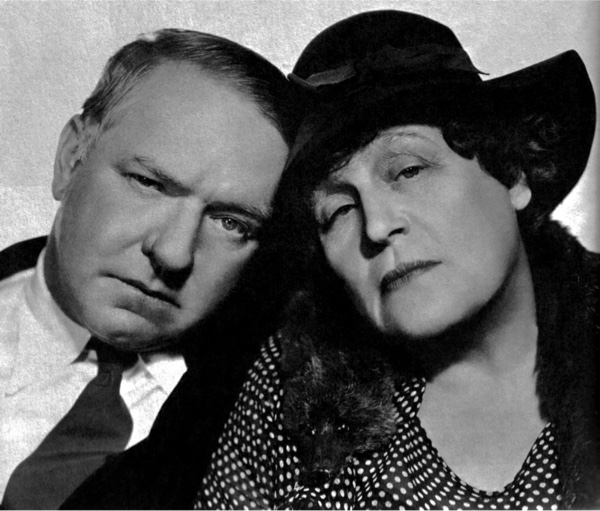


The Elusive Spondulix.

One of the great biographies of Fields titled W.C. Fields: His Follies and Fortunes written by a fellow named Robert Louis Taylor garnered my adjective “great” because the guy wrote beautifully, albeit inaccurately. He perpetuated myths, often concocted by “The Great Man” himself and other non-facts spun from rumors, tall tales and simply lies. Early on in my research of my grandfather, this rumor about bank accounts under his pseudonyms made no sense to me. I had a bank account, way back when, and whenever I needed to access it I had to present some form of identification. Fields had no driver's license, let's say, with Larsen E. Whipsnade or any other alias scrawled across it. So I rejected out right the AKA aspect of this tale. Besides sporting more than trace amounts of parsimony in his DNA, W.C. would never put “the elusive spondulix” in a place he could not access without the requisite identification. A few years later I met and interviewed Fields' secretary, Magna Michael, and she confirmed to me that her boss not only knew exactly how much money he deposited throughout the world under his own name, but he calculated the interest that accrued over the years nearly to the penny. He opened these accounts while travelling the globe in vaudeville. He often received his salary in cash and feared carrying such large sums on his person, thus he would open accounts in cities where he performed and got paid.
Apropos, legend has it that John Barrymore and W.C. Fields one evening while participating in their daily toasts, had the radio on that announced that war with Germany seemed imminent. Barrymore turns to Fields and says, “Don't you have $10,000 in Berlin? Aren't you worried about its safety?” Fields responds, “Not really, suppose the son of a bitch wins.”
How the Stash Changes Them.
Enquiry:
I'd like to introduce my 10 year old grandson to WC Fields and hope to rent some movies. A friend was telling me recently of a movie or a sequence in a movie where W.C. Fields was poor but won the lottery. He bought several new cars and whenever a road hog got in the way, W.C.'s chauffeur ran them off of the road and then W.C. and his wife would hop in their next lined up new vehicle. Do you happen to know what movie this came from. Thank you for your help, Jeanine
Response:
Now, to your enquiry: The name of the segment you describe came from the film If I had a Million. A patchwork motion picture, it broke the boundaries of filmic storytelling by eschewing a story arc that follows one or two main characters to fulfill a mission with impediments. (i.e. Dorothy wants to get back to Kansas, or W.C. wants to get an orange ranch in California). In ...Million, the plot settles around a multi-millionaire who thinks he faces near death and does not want to leave his money to his mendicant-ish relatives so he decides to randomly pick people from the phone directory and give each a million dollars until his money dries up. The film then tells the story of a number of characters who receive the money and we follow how the stash changes them. Gary Cooper, George Raft, Charles Laughton, Charlie Ruggles, and a slew of Paramount stars make-up the “cameo” appearances in the various vignettes including W.C.'s own little story.

It turns out in the film and real life Fields is an ex-vaudevillian juggler. Recently married to one of his favorite foils, Allison Skepworth in real life, Emily in the film, Rollo LaRue (W.C.) benefits from Emily's new found wealth. It turns out they both harbor a maniacal hatred for bad drivers particularly “road hogs.” With their new found largesse they decide to buy a fleet of cars with drivers and hit the pavement in search of “road hogs.” Once found they run the evil drivers off the road, get out of their wrecked car and get to the next vehicle to find the new road hog and deal with him/her in like manner. In my film book I gave this piece a mediocre review. It is not his best. For an intro to Fields I think a ten year old would prefer one of Fields' Sennett shorts such as The Dentist, The Pharmacist, or The Barber Shop. Best yet, my documentary W.C. Fields Straight-up highlights W.C.'s best clips from all his films (I think you can find it at Amazon). At ten, you may want to fast forward through the interviews.
